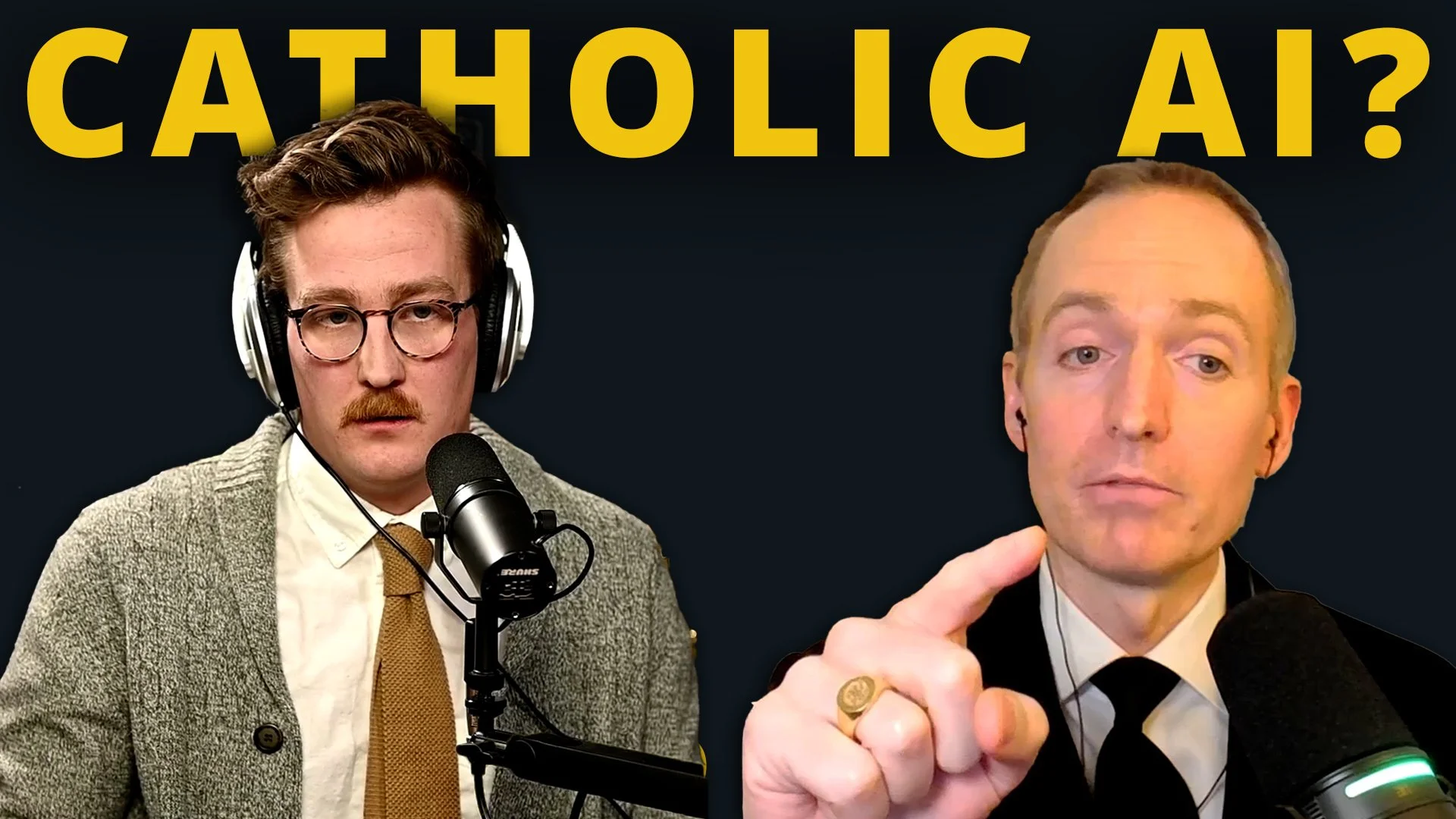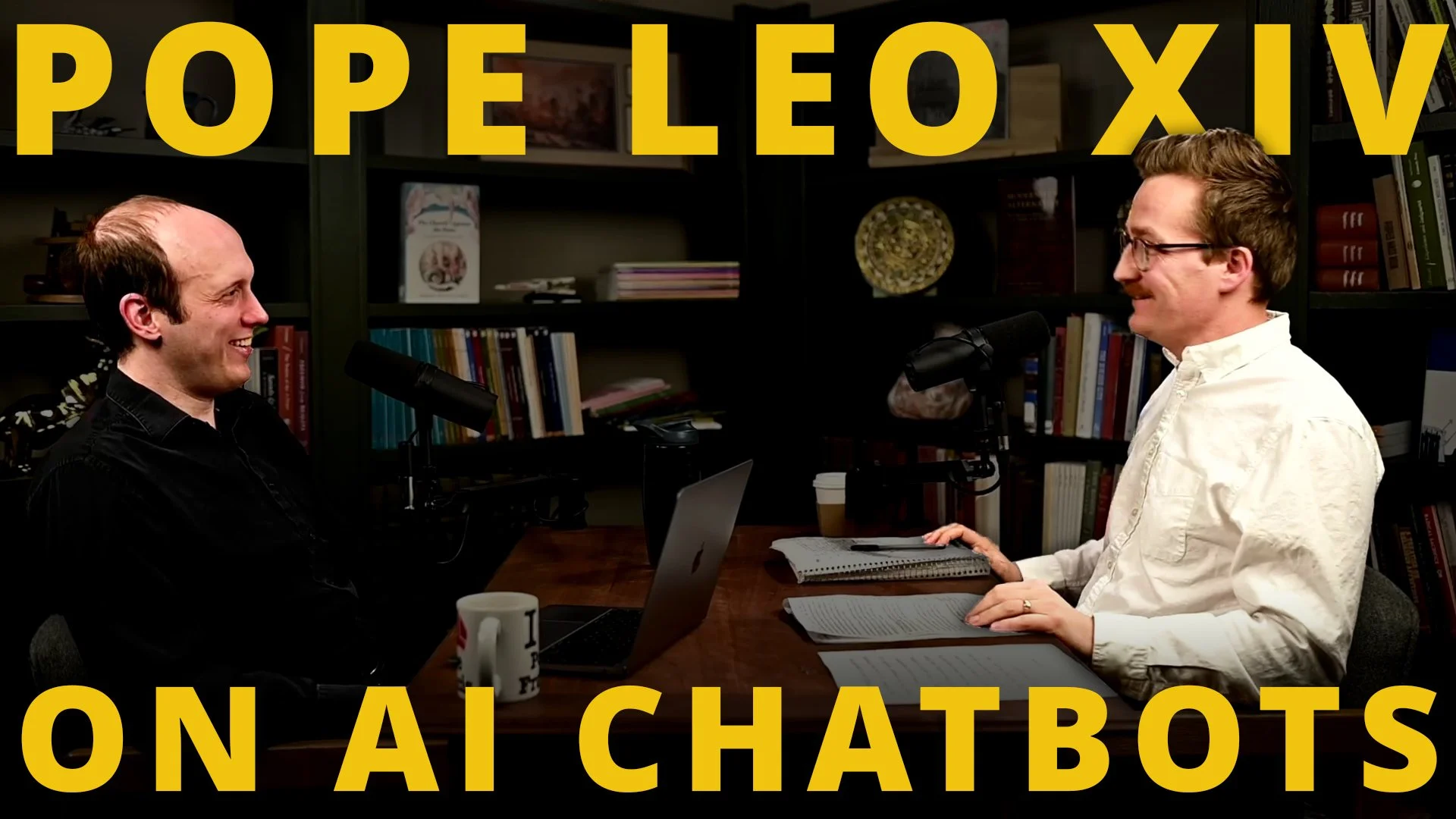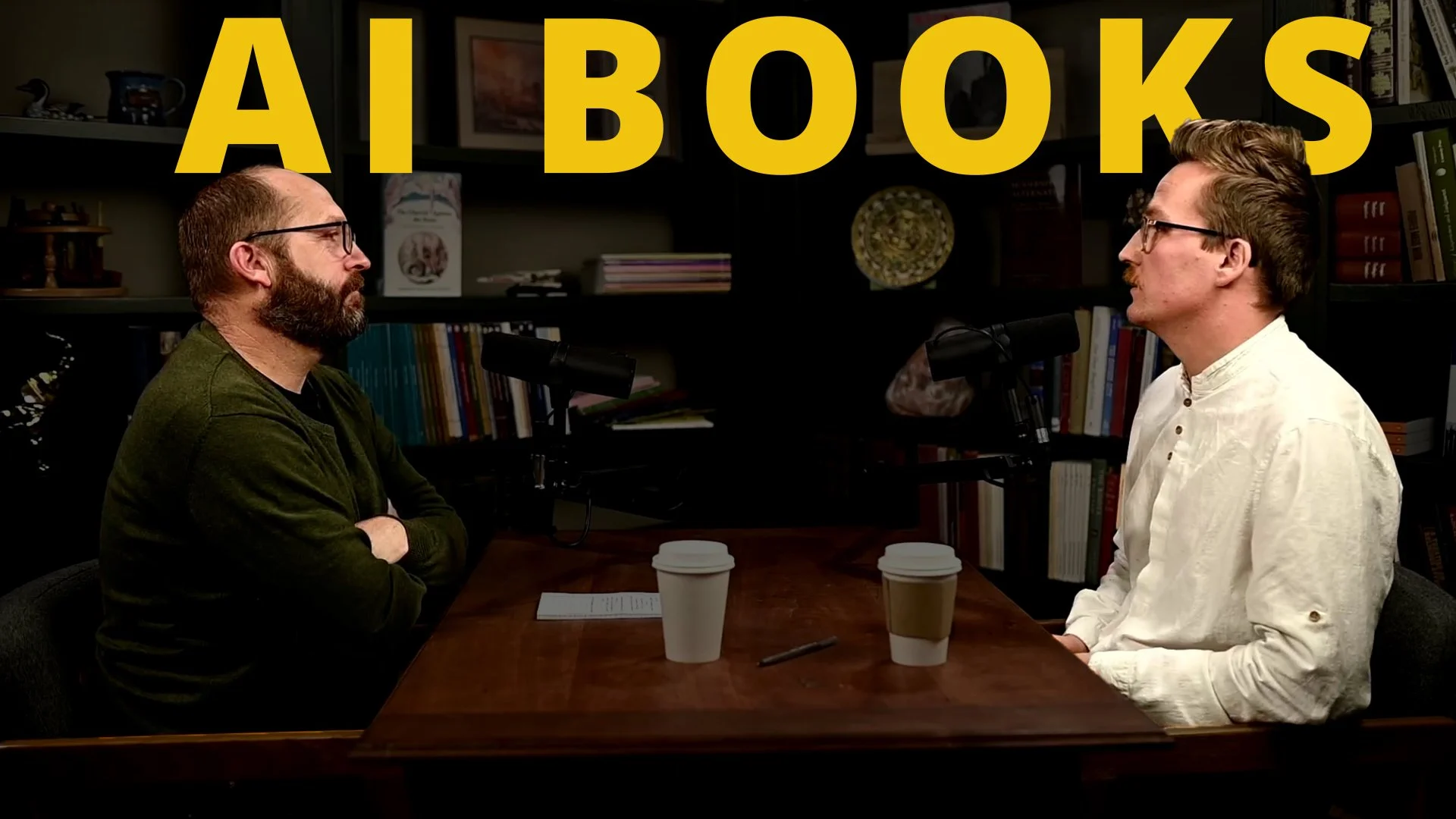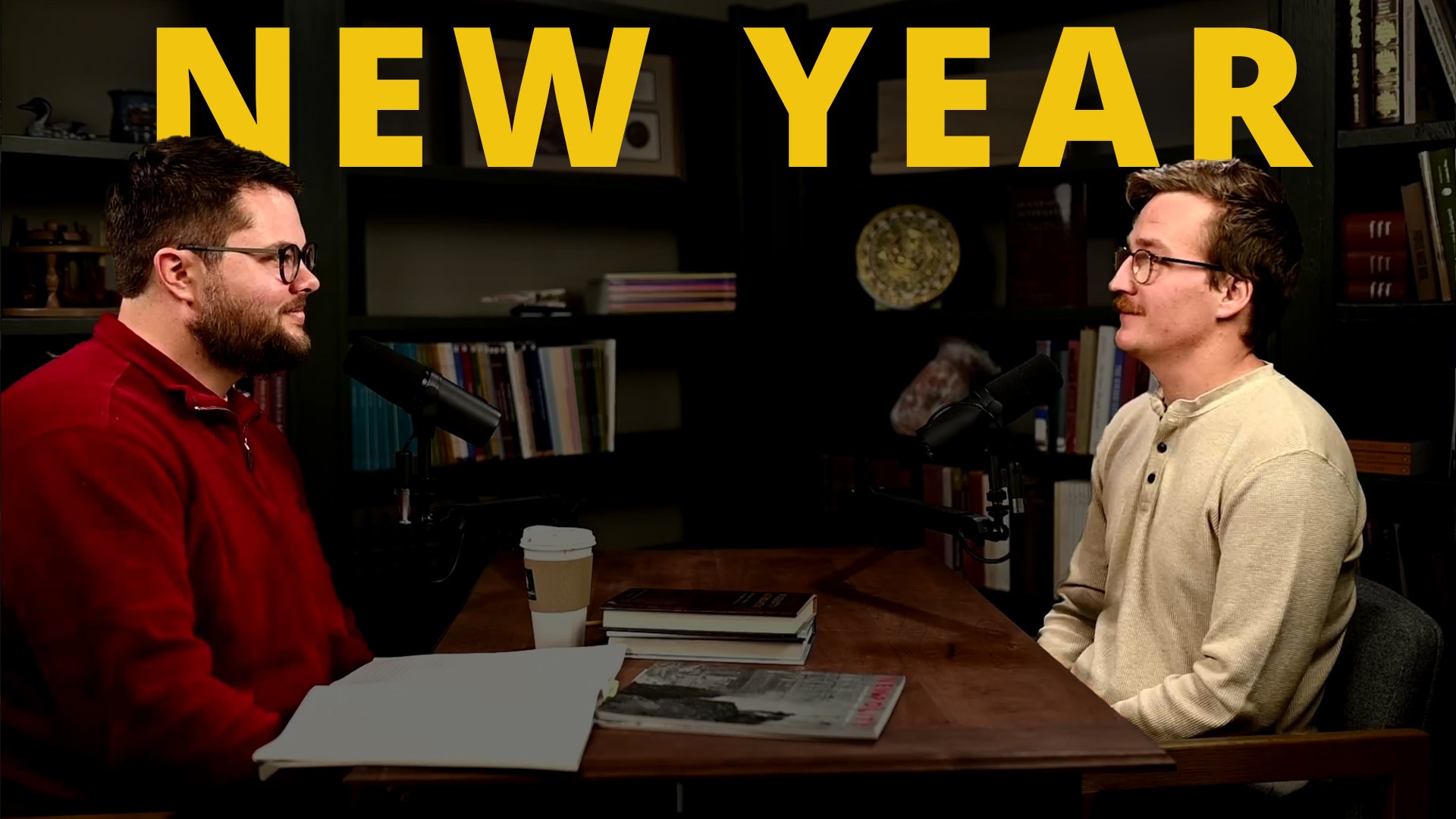More Podcasts
In this podcast, Marc Barnes and Michael Boland discuss the upcoming New Polity magazine, Issue 7.1, on Man and Woman. Specifically, they discuss the philosophical and metaphysical problems of sexual difference, and how our understanding of man and woman impacts our view of politics.
In this podcast, Matthew Harvey Sanders, CEO of Longbeard (creator of MagisteriumAI), and Marc Barnes, editor of New Polity, debate whether Catholics should build and use AI chatbots. Barnes argues that Catholic AI chatbots are objectively evil because they generate probabilistic statements about the faith, are irresponsible in their responses, and are inherently fake conversations with non-persons. Sanders argues that Catholics should embrace this new technological development and that there is an openness from the Vatican about the creation of a true artificial intelligence. This debate is hosted by Edmund Mitchell of the Faith and AI Project.
What is the Catholic response to AI? Pope Leo XIV, in his recent message for the 60th World Day of Social Communications, takes a critical look at AI: namely, how it is "encroach[ing] upon the deepest level of communication, that of human relationships." Pope Leo asserts that our faces and voices are sacred, a witness to the unique, singular dignity of each human person. With AI already mimicking persons in social media and through deepfakes, the Pope calls for overcoming the "anthropomorphizing tendencies of AI systems." In this podcast, Marc Barnes and Reuben Slife go line-by-line through the message of Pope Leo, and discuss its implications for the Catholic approach to AI.
The book has long been the place of completed thought, able to incorporate previous work and advance new thought. That is going away. AI generation is polluting the discourse; leading to a state where all "new" publications are, in fact, summarized AI restatements of the previous state of the question. In this podcast, Marc Barnes and Andrew Willard Jones discuss the effects of AI on the the technology of the books, and how a literate culture persists.
Happy New Year! In this podcast, Marc Barnes and Alex Denley discuss New Polity's 2025 year, the books and magazines published, and look ahead to the New Year. Thank you to everyone who read or listened to us this year.
The sixth annual New Polity conference aims to refute bad ideas concerning marriage and sexual difference; to debate the metaphysics of man and woman; to argue for a profound continuity between the order of man and woman and the political and cosmic order as a whole; to shed a light on the tyranny-destroying potential of marriage; and, in sum, to rediscover the mystery and purpose of sexual difference as revealed by the Incarnation of Jesus Christ. In this podcast, Marc Barnes and Andrew Willard Jones discuss the relation of man and woman, the metaphysical implications, and the 2026 conference.
We are excited to announce our next New Polity Magazine: Issue 6.4 on The Critique of America, featuring essays by Reuben Slife, David L. Schindler, Michael Hanby, John Byron Kuhner and more. In this podcast, Marc Barnes and Michael Boland discuss the critique of America, structures of sin, and the idea of the American people.
Marc Barnes believes that AI chatbots are evil, and that having a faux conversation with AI chatbots is wrong. Joseph Hobbs, Senior Solution Architect at Databricks, disagrees. In this podcast, they discuss the nature of conversation, how AI imitates conversation, and the Catholic response to AI Chatbots.
In this podcast, Alex Denley and Marc Barnes discuss the upcoming New Polity magazine on AI, the Church's social teaching on technocracy and the technocratic paradigm, and the Christian response to Artificial Intelligence.
Technology has given an untrained humanity unprecedented power over itself. Peter Berkman, following Marshall McLuhan and Romano Guardini, argues that he "digital world" has rapidly replaced other modes of human interaction, and AI presents a rapid acceleration of that movement. In this podcast, Marc Barnes and Peter Berkman discuss this development and the Christian response.
America was a place of untold wealth in the post-war period. But today, many small towns are faltering and facing financial collapse. In this podcast, Strong Towns founder and president Chuck Marohn sits down with Marc Barnes and Jacob Hyman to discuss how this collapse came about, and how to rebuild the small town.
We are happy to announce the next issue of New Polity Magazine, dedicated specifically to Artificial Intelligence! Featuring essays by Matthew Crawford, Slavoj Žižek, D. C. Schindler, Michael Hanby, Andrew Willard Jones, and many more. Subscribe by October 1st to receive this issue! Alex Denley and Marc Barnes discuss the Christian response to AI, how to safeguard human freedom, and AI as a new industrial revolution.
In this podcast, Alex Denley and Professor Rocco Buttiglione discuss the problem of globalization, mass migration, and populism. Post-war globalization brought a great increase in international trade, cooperation, technical and educational development, and cultural sharing. However, with open trade came the loss of manufacturing and industry in the West, and the emptying of the working class. Along with mass migration, the people grew to resent their global elite. Professor Buttiglione discusses the Church's response to globalization, and the need for a new elite who care for the people.
Liberalism is on the defensive. Political discussion is shifting from “what’s wrong with liberalism” to “what’s true about politics”—to the question of what exactly must displace liberalism. In The Politics of the Real, D. C. Schindler takes us to the definitive metaphysical roots of liberal politics: the modern reversal of the priority of act over potency; the modern privileging of empty possibility over flourishing perfection. In this podcast, Michael Boland and D. C. Schindler discuss liberalism, and how we can build a politics of the real.
VIDEOS

ESSAYS
Gone are the days of the misspelling mail-order bride and au revoir, sweet Nigerian prince.
Magisterium AI—the Catholic chatbot that Sanders characterizes as a paver on “the Golden Path”—is bad.
Magazine
Subscribe now to get Issue 4.
Get the Magazine
New Polity Magazine aims to deconstruct the keywords and categories of liberalism and reconstruct them according to the logic of Christianity. Get the latest issue and access to our archives.
















In this podcast, Marc Barnes and Michael Boland discuss the upcoming New Polity magazine, Issue 7.1, on Man and Woman. Specifically, they discuss the philosophical and metaphysical problems of sexual difference, and how our understanding of man and woman impacts our view of politics.